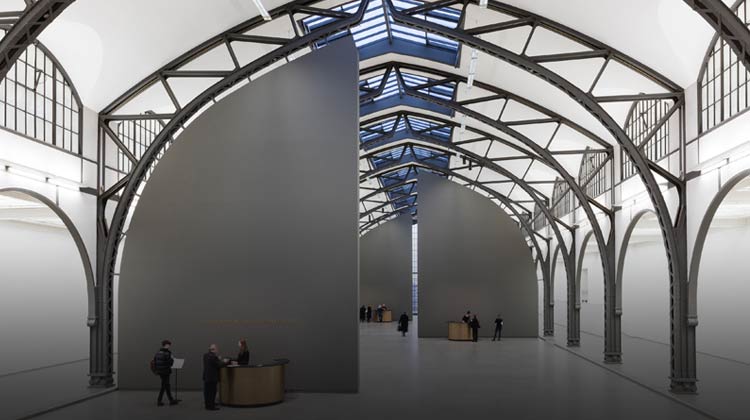Berlin exhibition
An exhibition in Berlin presents a model for a better world. It also works as a recipe for professional communication, Ivo Banek from Communication Works found out.
28. March 2017
The golden reception desk in the cathedral-like hall indicates: This is about something substantial. What exactly, is written in golden letters on the wall behind the desk: “I will always be too expensive to buy.”

Foto: © Adrian Piper Research Archive Foundation Berlin
This is “rule of the game number 1” for “The Probable Trust Registry”, established by American artist and philosopher Adrian Piper. She has initiated the project in the museum “Hamburger Bahnhof” which invites for participation and wants to create “a new basis of trust among us”.
Trust also is the currency in my profession, communication. So I go and have a look, stopping by the desk with rule number one.
That I cannot be bought – this I should be able to promise, I think. “Depends how you understand it”, the receptionist tells me. “I’ve had some artists saying their work always contains a piece of themselves. So they didn’t sign.”
Now, I’m no artist, at least not by profession. But my work as a consultant for communication also contains a lot of me personally. And I advise all kinds of customers with all kinds of needs. What does it mean in that context to be not buyable? – For me, it means that I won’t betray my principles for money (nor for anything else, for that part). Nevertheless, I can have contact with people who do not share my principles. I can even work for them as a consultant.
But we will probably quickly reach a decisive point: I am convinced that communication always has to do with values. A company can in the long run only communicate succesfully (and operate succesfully), if it credibly shows a purpose beyond profit. To convey this to my client is an important part of my work. I wouldn’t support fiddling – on principle as well as by professional conviction.
So I sign on the touchscreen at the golden counter that I will always be too expensive to buy, and get a print-out – a contract with myself.
To become trustworthy, we all need to be able to rely on ourselves to fulfill our own expectations of ourselves, Adrian Piper says about her project. This requires, “that we can bring our actions into accord with our assertions, our assertions into accord with our beliefs, and our beliefs into accord with our values”.
Matching, rule of the game number 2: “I will always mean what I say.” – Well, in my time as a press officer, I have certainly said a few things which I didn’t agree with completely. But it was always clear on whose behalf I was speaking. My role was transparent, I didn’t hide behind it.
To be authentic is an imperative of all communication. For me as a consultant it also implies not to tell my clients what they want to hear but what they need to hear, including uncomfortable truths and different views. The clients benefit from that, I believe.
I sign and get a second print-out.
“I will always do what I say I am going to do.” – The third and last rule of the game strikes the very core of professional communication. We deal a lot with expectations of others. The better we know those expectations, the more we adjust our messages to them. There is a great temptation to promise what is expected, no matter whether we can live up to it. This is the traditional thing to do, from colourful advertising to election campaigns.
However, it doesn’t really work anymore. Interestingly enough, the more virtual reality and alternative facts surround us, the more important it seems to become that we can take others at their word. Therefore, sustainable communication has to weigh carefully which promises to make instead of carelessly promising too much.
I sign the third contract and go home.
About half an hour I have spent at the museum, chatted with other visitors and contemplated about the three sentences. The list with all signatures – the “Probable Trust Registry” – will be stored for a hundred years.
In other words, enough time to be measured against my promises.
The exhibition runs until September 3, 2017.